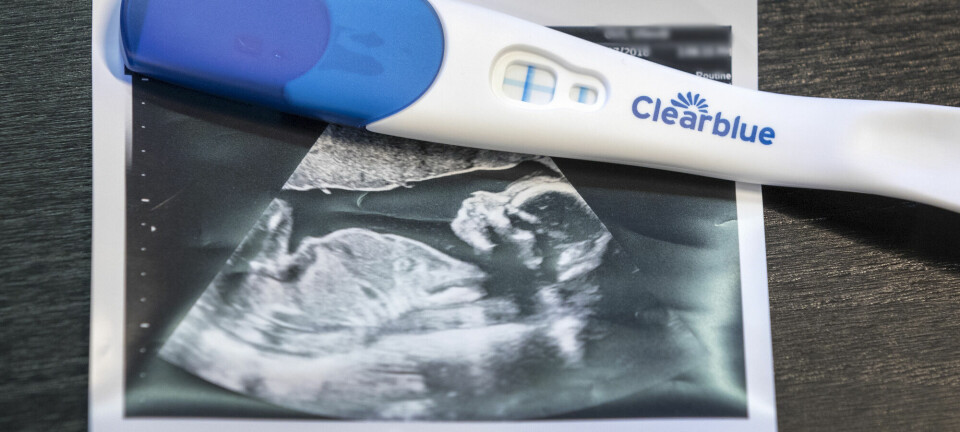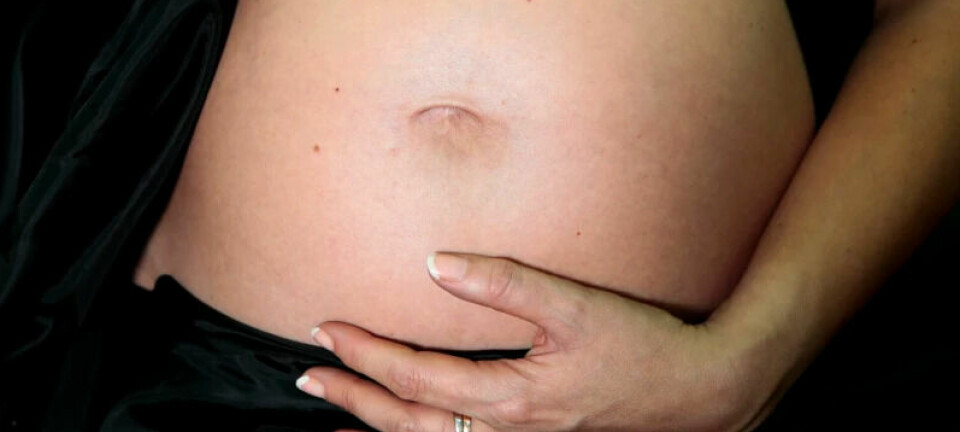
Researchers have identified the cause behind the majority of all miscarriages
Researchers have assumed that chromosomal errors in the foetus are behind half of all early miscarriages. A new study finds such errors in the genes in two out of three miscarried foetuses.
The researchers at the University of Maastricht in the Netherlands do not rule out that the proportion of miscarried foetuses with genetic defects could be even higher as they move forward with even better tools to investigate this.
Many women who know they are pregnant and experience a miscarriage wonder if it could be something they themselves have done that caused the miscarriage.
Researchers can now confirm that in at least two out of three cases, it is a genetic error in the foetus that causes it to die early in pregnancy and be expelled from the body.
The remaining third of spontaneous early miscarriages are also likely due to factors beyond our control, the researchers believe.
Found several genetic errors
Women who experience the embryo or foetus dying in the first months of pregnancy generally do not get an answer as to why it died.
Researcher Zamani Esteki and colleagues in Maastricht have therefore examined tissue from 1,745 miscarriages. The women had miscarried after an average of seven weeks.
Initially, the researchers found that in about 50 per cent of the cases, there was something abnormal in the 23 chromosome pairs that humans have in our DNA. For example, the foetus could have an abnormal number of chromosomes. This finding was as expected and in line with previous studies.
But when the researchers used a new and better analysis method to look closer at tissue samples with seemingly normal genes and chromosomes, they found errors in about a third of these as well.
This allowed them to conclude that at least two out of three early miscarriages were due to genetic errors.
Most viewed
Very interesting findings
“These are very interesting findings,” says researcher Siri Eldevik Håberg at the Norwegian Institute of Public Health (NIPH). She has herself researched miscarriages.
Håberg believes that what the Dutch researchers have found, matches well with how she herself has imagined it must be.
She explains that miscarriages often result from random errors and mechanisms within the embryo, which typically lead to its inability to survive.
Håberg thinks it is natural that many women try to find explanations for what led to a miscarriage. They wonder if there is something they themselves could have done that affected the embryo or foetus.
“With knowledge like what we get through a study like this, we become even more certain that many miscarriages happen because of random errors in cell division. It’s something the woman who experiences it has no control over. Something she herself could not have influenced,” Håberg tells sciencenorway.no.
Reduce the feeling of guilt
Researcher Siobhan Quenby at the University of Warwick in the UK tells New Scientist magazine that women often wrongly blame themselves for a miscarriage.
Women may, for example, tell themselves that they stressed too much early in pregnancy and that this could be the reason they miscarried.

Quenby suggests that informing a woman that the pregnancy ended due to abnormalities in the foetus’ genetics can help alleviate her guilt.
The Dutch researchers also suggest that a significant portion of the remaining miscarriages could be due to genetic errors in the foetus, although these might not always involve the most common types of chromosomal abnormalities.
Risk increases with age
Norway is one of the few countries where it is possible to study miscarriages at the population level. This is because researchers can utilise data from the country’s comprehensive national health registries.
At the Centre for Fertility and Health at NIPH, a group of researchers used these national health registries to estimate the risk of miscarriage among Norwegian women.
The researchers at the centre found that the risk of miscarriage is strongly linked to the mother's age.
The average risk of a known pregnancy ending in miscarriage was 12.8 per cent among the more than 420,000 pregnancies in Norway that the researchers examined.
The risk significantly increased from the age of 30, the Norwegian researchers found.
Among women who were 45 years and older, 53 per cent of known pregnancies ended in miscarriage.
———
Translated by Alette Bjordal Gjellesvik
Read the Norwegian version of this article on forskning.no
References:
Essers et al. Prevalence of chromosomal alterations in first-trimester spontaneous pregnancy loss, Nature Medicine, vol. 29, 2023. DOI: 10.1038/s41591-023-02645-5
Magnus et al. Role of maternal age and pregnancy history in risk of miscarriage: prospective register based study, BMJ, 2019. DOI: 10.1136/bmj.l869
Wilson, C. Genetic errors are behind more than two thirds of early miscarriages, New Scientist, 2023.







































